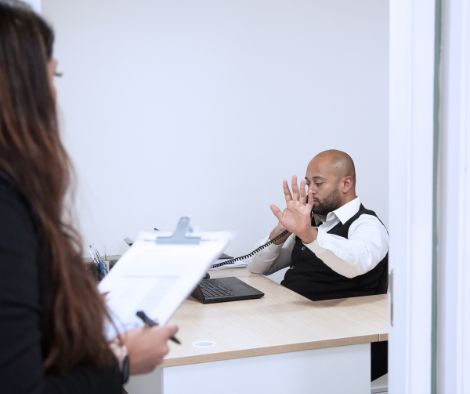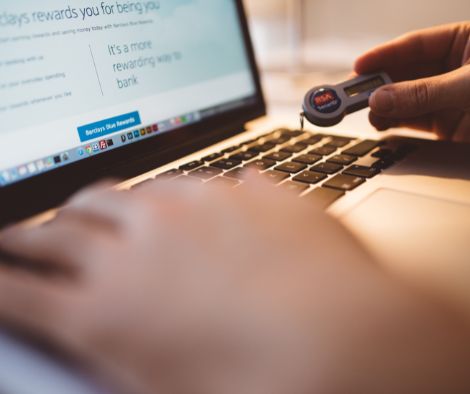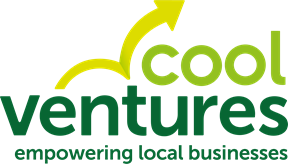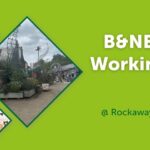Small Business Tips from Amy Morse
Our Outreach Business Advisor, Amy Morse, celebrates 10 years of self-employment this year. As well as working 3 days a week for us, Amy is also self-employed. She publishes journals and books.
In this blog, she shares 10 things she has learned from being in business for 10 years.
10 Small Business Lessons from 10 Years of Self-Employment
A decade in business teaches you more than you expect—and humbles you more than you think. When I started my business back in 2015, I did so with the help of a Business Mentor on the (now non-existent) New Enterprise Allowance Business Startup Scheme.
I’d been employed as a Business Advisor, but I had also published my fiction novels. When the funding for community the business project I was working on ended and I was made redundant, that was the moment I decided to bring my experience supporting other businesses and my world as a writer together to support and coach others to write and build their businesses.
Now, 10 years later, I’m reflecting on the lessons that have shaped not just the business, but me as a person.

1. Consistency Wins Over Intensity
It’s not about the occasional grand gesture—it’s about showing up every day. Systems, routines, and good habits are what keep a business running long-term. Anyone who has had a 1 to 1 with me, or been to any workshops I have hosted, will be familiar with my mantra:
Little and often is the key to success.
2. Cash Flow is King
Revenue looks good on paper, but cash in the bank keeps the lights on. Managing cash flow wisely has saved me more times than I’d like to admit. There have been months when I barely made £100, and months where I made thousands.
Have different ways to bring in consistent income, or get really good at budgeting!


3. Be Adaptable
What worked in year two probably won’t work in year ten. Trends shift. I have been through multiple iterations of my business. I have had about 5 different websites, and rebranded many times. I have been employed and self-employed. The community business support contractor market has shifted significantly and shrunk over the years, so I have always had to develop different ideas and try new things to create enough work for myself.
4. Know Your Why
I am rethinking my business once again, but the things that remain constant are my reasons for choosing this path. I enjoy change, variety, freedom, creativity, and making a difference for other people. My ‘why’ isn’t about the ‘thing’ I do it’s about the life I want.
It’s easy to lose sight of your original ‘why’. Revisit it often. It’ll guide your decisions when things get noisy.
Everyone’s motivation for choosing this path will be different, there is no right or wrong – that’s the beauty of creating something uniquely yours.


5. Learn to say ‘no’
Not every opportunity is a good fit. Saying “no” strategically has opened more doors than saying “yes” to everything. I’ve found myself stuck in some miserable spirals, doing things I don’t like because ‘I can do them’. My driver was fear that if I said ‘no’ there would be nothing to replace it, and because I felt guilty. Compromising my integrity like that in the past has played havoc with my mental health. It takes confidence and resilience to stay true to your values as a person and a business, but it is fundamental.
6. Rest Is a Business Strategy
Burnout helps no one. Stepping back, taking breaks, establishing boundaries, and investing in your own well-being and personal development, isn’t indulgent—it’s essential.
You are the greatest asset, and the biggest risk to your business.
During COVID I worked on a lucrative, but challenging, business support contract. I was burnt out when it came to an end, but I was also quids in!
I took the temporary pain so I could fund an extended break afterwards. I volunteered at Hartcliffe City Farm and Windmill Hill City Farm and that experience shifted my whole perspective. I have since taken on an allotment. I now know that my next business adventure will allow me to spend more time being outdoors, getting muddy, and growing sustainable food and flowers.


7. It’s Who You Know
Just because you are self employed doesn’t mean you have to do it all yourself. Businesses do not operate in isolation; you need people around it. Whether that’s the connections you create, the people you meet, the business friends you make, your peers, your support network, customers, suppliers, advocates, enthusiasts and champions.
The first thing I did when I become self employed was build my network.
Every opportunity I have had has been because of a real-life connection I have made. In our increasingly automated and digitalised world, I believe now more than ever that it’s all about the real human connections you create. That’s what makes us better than the machines!
8. Listen More Than You Talk
Whether it’s your customers, employees, or partners—listening leads to better decisions. Silence can be a strategy.


9. All In is Overrated
Before you go all in and put your life savings on the line – start small. Test proof of concept, pivot, adapt, and tweak it before you lose too much time and money. You can do all the research in the world, and be passionate about your idea, but it’s only when you start trading that you find out whether or not it will work.
A good example is startups spending thousands on an all singing, all dancing website, only to find out when they start the business that it’s not fit for purpose.
There is a concept called the ‘Sunk Cost Fallacy’ – it’s the idea that once you have already started something, and invested time and money on it, you double down when it’s not working. Being too stubborn to walk away, or say ‘no’, can be catastrophic.
It’s great to dream big, but better to start small.
10. Use It or Lose It
Get all the free support you can. You don’t know what you don’t know, especially in the early days. It’s better to hear something more than once, than not at all. Getting help from people who have been there or are experts in their field is invaluable. Use it.
These things will not always be there. The NEA (New Enterprise Allowance) Business Startup Scheme is a good example of a national scheme that used to provide mentoring and a grant but ended a few years ago.
Never be afraid (or too proud) to ask for help. It will save you time and money, plus you learn new skills, gain confidence, and meet some inspiring people along the way.

Final Thoughts
Ten years in, I’m proud—but not finished. These lessons weren’t learned in a classroom; they were earned through late nights, early mornings, tough calls, and lucky breaks. If you’re just starting out—or if you’re in your own year ten—I hope these insights help you along your journey.
Here’s to the next ten.
If you’re a small business in South Gloucestershire or Bath & North East Somerset, discover our fully funded support programmes here
If you’re looking for support and are based elsewhere see what can be available to you on the gov.uk website.






